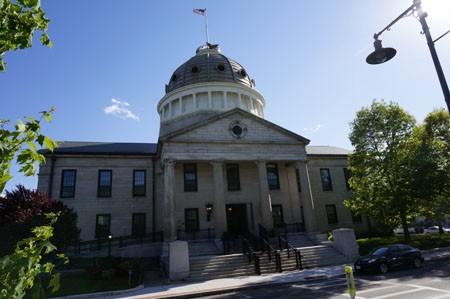Not quite free at last: Fred Weichel and the inability of prosecutors to fully let go
Norfolk County (Massachusetts) prosecutors announced on Monday that they do not intend to retry Fred Weichel, a South Boston man who spent 36 years behind bars for a murder the existing evidence suggests he did not commit. Yet the district attorney’s office took pains to clarify that the decision not to re-prosecute falls far short […]

Norfolk County (Massachusetts) prosecutors announced on Monday that they do not intend to retry Fred Weichel, a South Boston man who spent 36 years behind bars for a murder the existing evidence suggests he did not commit. Yet the district attorney’s office took pains to clarify that the decision not to re-prosecute falls far short of an exoneration. On the contrary, the prosecution insisted that it “remains committed to retrying this defendant for the murder . . . if sufficient evidence were to become available.” The prosecutors’ unwillingness to release Weichel from the specter of prosecution, much less their reluctance to proclaim him innocent, creates a cloud that will hang over him for his remaining days.
In April, Superior Court Judge Raymond Veary, Jr., granted Weichel a new trial in a case that contained two hallmarks of many innocence cases: a dubious eyewitness identification and government misconduct. (Note: I serve on the Board of Trustees of the New England Innocence Project, a group that aided one of Weichel’s lawyers in the proceedings before Judge Veary.) Weichel’s saga began with the murder of Robert LaMonica outside his apartment in Braintree, Massachusetts, one night in 1980. A teenager told the police that he saw the assailant get into a car and rush away from the scene. Even though this witness had just polished off a six-pack of beer and was roughly 180 feet away from the crime scene, the police relied on him to help produce a composite sketch of the perpetrator. The police later escorted the witness to South Boston where he saw Weichel on the street and identified him. Despite Weichel’s claims of innocence and alibi evidence, the jury convicted him of murder.
The case largely languished until 2010 when information emerged about a police report made by a Braintree Detective shortly after LaMonica’s murder. In that 1980 report, the detective detailed how numerous state corrections officers had looked at the composite sketch and determined it resembled another man: Rocco Balliro, a former prisoner who had admitted to another murder and had just been granted furlough the day before LaMonica’s killing. This evidence was not disclosed to Weichel’s attorneys before trial and only came to light when Weichel’s new lawyers requested the full police file three decades later. As Judge Veary concluded, without this report at his disposal, Weichel could not properly undercut the teenager’s identification at trial, much less launch a third-party-perpetrator defense. Late last month the highest court in Massachusetts, the Supreme Judicial Court, affirmed Judge Veary’s decision to order a new trial.
It makes sense for prosecutors to forego a retrial 37 years after the murder. Balliro has since died, as have many witnesses in the case. The murder weapon was destroyed, the crime scene diagrams lost. What makes less sense is why prosecutors neglected to declare that Weichel, with 36 years of prison time for this crime under his belt, will never be retried.
Perhaps it’s human nature to keep your options open if given the choice. And absent a formal declaration of innocence by a court, the prosecution does enjoy the privilege to pursue a retrial down the road. But, realistically, what’s the likelihood the prosecution will ever exercise this option? Slim to none. Why then make such a public effort to preserve the chance to retry him at a later date? Anointing Weichel as innocent could, in theory, harm the state’s case in a subsequent civil lawsuit for monetary damages. (The pertinent Massachusetts statute suggests Weichel would likely still be eligible to seek wrongful conviction compensation.) Even accounting for liability concerns associated with a declaration of innocence, why not at least announce that Weichel will never be retried for practical and humanitarian reasons, such as the passage of time and the length of his incarceration? The possible explanations strike me as worrisome. Tunnel vision about Weichel’s guilt? Hubris? Callousness?
Prosecutors are supposed to be “ministers of justice” committed to fairness for all, including criminal defendants. In the Weichel case, this week’s announcement by the Norfolk County DA’s Office only goes partway down the path to justice. An acknowledgment by prosecutors that Weichel will never be retried would take us much farther in the right direction.
